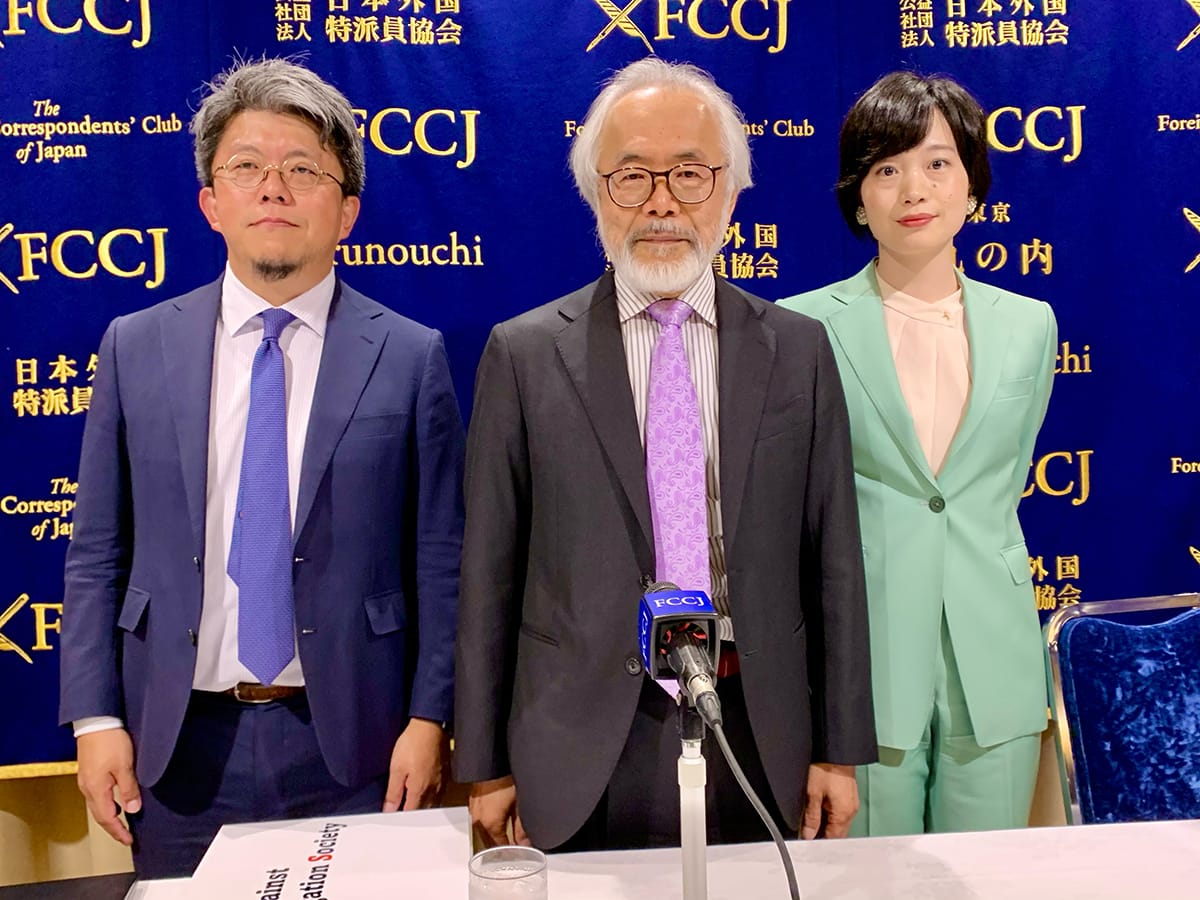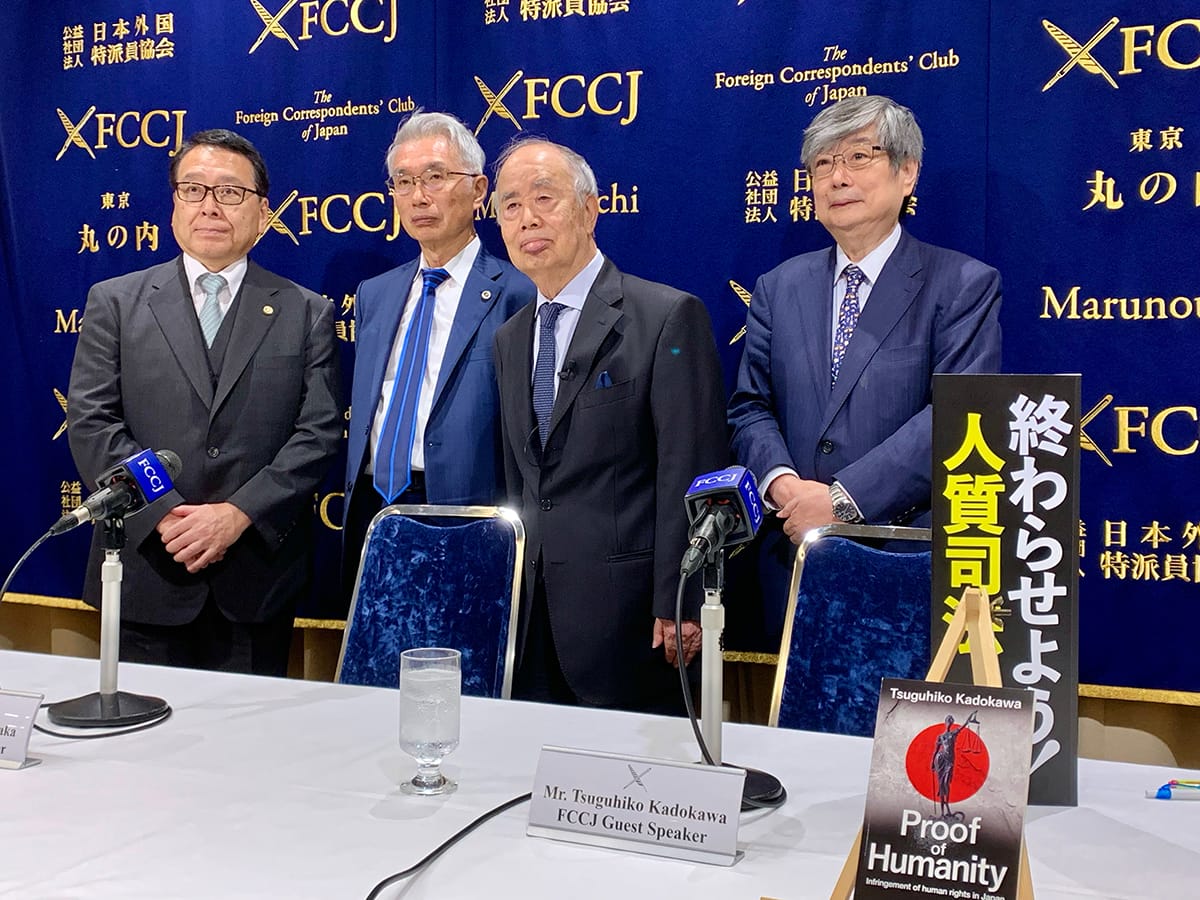TOKYO – Japan’s criminal justice system is once again under scrutiny, with renewed calls from victims and critics for reform and the abolition of its reliance on “hostage justice,” which involves arresting, detaining, and denying bail to suspects who refuse interrogations and exercise their right to remain silent, often leading to prolonged pre-trial detention. Despite Article 38, Section 1 of the Constitution of Japan, which states, “No person shall be compelled to testify against himself,” they argue that this controversial practice results in false confessions and wrongful convictions.
Recently, Tsuguhiko Kadokawa, the 80-year-old former chairman of Japanese publishing giant Kadokawa Corporation, claimed to be a victim of the “hostage justice” system. He was detained for 226 days on bribery charges related to the 2020 Tokyo Olympic Games and was released on a 200-million-yen bond.
At the Tokyo Detention House, he endured inhumane treatment, including 24-hour monitoring, even during excretion, according to his legal team. They reported that Kadokawa, then 79 years old, suffered from chronic health issues, including an irregular heartbeat, and was scheduled for surgery within two months.
They said that during his detention, Kadokawa was subjected to lengthy daily interrogations totaling 78 hours and 29 minutes. Despite his health condition, the defense counsel’s request to rescind his detention was rejected by the court.
“During my detention, I was hospitalized at the University Hospital twice, having to endure very serious health conditions,” Kadokawa stated at a press conference at the Foreign Correspondents’ Club of Japan (FCCJ).
On June 27, Kadokawa filed a civil lawsuit in the Tokyo District Court against the state, alleging “unconstitutional” and “illegal” detention and seeking ¥220 million in damages.
“This is not about the Tokyo Olympics-related case. This litigation involves me as a plaintiff regarding the treatment I had to go through—the inhumane treatment I was subjected to,” he emphasized.
On the same day, Kadokawa also filed a complaint with the United Nations Human Rights Committee. “I hope that my experience will be judged based on international standards and international human rights law. I also hope that the United Nations will act in a way that the government of Japan will rectify its action,” he said.

Takashi Takano (center) spearheads the group The Right Against Interrogation Society.
Prominent criminal defense lawyer Takashi Takano, a vocal critic of “hostage justice,” is actively challenging this system. He co-founded “Torishirabe Kyohiken wo Jitsugensuru Kai” (The Right Against Interrogation Society, or RAIS) with 20 lawyers from Tokyo, Osaka, and Kanagawa. Their mission is to abolish this practice and uphold the right to remain silent during police interrogations.
“I have no doubt that Japan is the most industrialized and modernized democratic country in the world. Japan is safe and free compared to other developing countries. I have a great deal of doubt, however, about the achievement of the rule of law in this country, especially in the area of the criminal justice system,” he remarked at a separate press conference at the FCCJ.
Takano highlighted that in Japan, the use of “hostage justice” results in public prosecutors winning about 99 percent of contested cases. He criticized this outcome as “shameful,” emphasizing its direct link to a significant number of wrongful convictions.
He noted that international human rights organizations have long criticized the country’s detention system, labeling it as “arbitrary detention” or referring to the Japanese justice system as a “hostage justice system.”
Human Rights Watch, for instance, criticized the country’s criminal justice system, stating that it operates on laws, procedures, and practices that systematically violate the rights of accused individuals. They described the “hostage justice” system as indicative of suspects often being detained for prolonged and arbitrary periods—sometimes extending several months to over a year—in order to extract confessions.
When asked about how RAIS will begin challenging the “hostage justice” system, Seiho Cho, attorney at law and vice chairperson of the group, emphasized that the crucial first step is to promote the right to refuse interrogation.
“Of course, police officers and the prosecutors will resist very strongly,” he told the Filipino-Japanese Journal.
On the other hand, Japan’s Ministry of Justice (MOJ) rebutted claims that the country’s criminal justice system operates as a “hostage justice” system. The MOJ asserted that the nation’s criminal justice system does not coerce confessions through prolonged detention. They stated that strict legal requirements and procedures govern the detention of suspects and defendants, ensuring human rights protections are upheld.
The ongoing controversies surrounding Japan’s “hostage justice” system remain a focal point of intense debate. As more high-profile cases, like Kadokawa’s, come to the forefront and advocacy groups such as RAIS push for change, the call for significant reforms or even the abolition of this practice is growing louder.
“In the context of my own experience, I came to realize that it’s not productive to simply hold grudges against prosecutors and the court; perhaps I can be a support to usher in steps to change Japanese society toward the next stage,” Kadokawa expressed. - Florenda Corpuz
Article cover photo: Tsuguhiko Kadokawa (2nd from right) with his legal team at the FCCJ on June 27, 2024.


